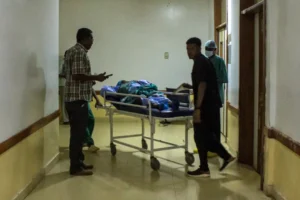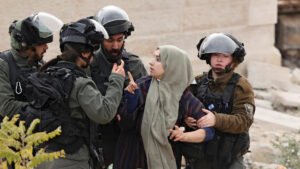The International Monetary Fund Staff Concludes Their Visit To Burkina Faso
The overall fiscal deficit widened sharply in 2017 to 7.7 percent of GDP, an unprecedented level for Burkina Faso where fiscal deficits in recent years have typically ranged from 2 to 4 percent of GDP
WASHINGTON D.C.
United States of America
May 8, 2018
- Burkina Faso’s economy expanded by more than 6 percent per year on average during 2016-2017, showing considerable resilience in the face of security and weather-related shocks.
- The fiscal deficit widened sharply in 2017 because of a substantial increase in spending, mainly on investment, but also on wages and salaries.
- The authorities are implementing economic reforms to maintain macroeconomic and financial stability and raise living standards. Achieving program targets will require vigilance.
An International Monetary Fund (IMF) staff team led by Ms. Dalia Hakura visited Burkina Faso during May 2-4, 2018, to discuss recent economic developments and begin monitoring implementation of the authorities’ program which is supported by the Extended Credit Facility (ECF) arrangement that was approved by the IMF Executive Board on March 14, 2018.
At the end of the staff visit, Ms. Hakura issued the following statement:
“The key objectives of the ECF arrangement in support of Burkina Faso’s economic program for 2018-2020 are to maintain macroeconomic stability and long-term debt sustainability while also providing fiscal space for priority investment, social and security spending. This is critical for sustainable growth and to achieve the country’s development objectives as laid out in the national economic and social development plan, the PNDES. The program emphasizes efforts to increase domestic revenue mobilization and the containment of current spending, notably on the wage bill, to generate resources to meet Burkina Faso’s considerable development needs. The program is also focused on improving the selection and execution of investment projects to ensure maximum gains from limited resources.
“The Burkinabe economy has performed well in the recent period, with economic growth averaging above 6 percent per year over 2016-17. Moreover, a similar growth rate is projected for 2018. This performance reflects considerable resilience in the face of external shocks, notably three significant terrorist attacks in Ouagadougou over the last two years and a deteriorating security situation in the border regions in the north, as well as poor rainfall in 2017, which threatens food security in the country.
“The overall fiscal deficit widened sharply in 2017 to 7.7 percent of GDP, an unprecedented level for Burkina Faso where fiscal deficits in recent years have typically ranged from 2 to 4 percent of GDP. A key pillar of the ECF-supported program is to bring the deficit down to 3 percent of GDP by 2019 in line with the authorities’ commitment to meet the West African Economic and Monetary Union (WAEMU) convergence criterion. A sustainable fiscal deficit at the regional level will contribute to a strengthening of the regional international reserves. Notwithstanding the objective of reducing the fiscal deficit, the program protects social spending, accommodates the budgeted increase in security-related spending, and supports a relatively elevated level of domestically-financed capital spending.
“The team welcomes the authorities’ continued commitment to the program. It is too early to draw firm conclusions regarding performance under the program. Revenue collection in the first quarter of 2018 appears to be broadly in line with the program targets, but unexpected events carry risks for revenue collection. In this regard, the team encourages the authorities to continue with ongoing efforts to strengthen revenue mobilization in line with the ECF arrangement. Government current spending is running ahead of the pace targeted in the program and can risk crowding out much needed social and infrastructure investment. The team underscores the importance of attaining the targets of the program, particularly with regard to the 5 percent of GDP fiscal deficit target for 2018, to build resilience to shocks and as part of a regional effort to sustain external stability and rebuild pooled regional foreign exchange reserves and for early corrective action to be taken if needed.
“The team will return to Ouagadougou in October to conduct the discussions for the first review under the ECF arrangement and for the 2018 Article IV consultation. “The team met with Minister of Economy, Finance and Development Sori-Coulibaly, Minister of Budget Yaka, National Director of the Central Bank of West African States Ki-Zerbo, other senior government officials, representatives of the private sector and civil society, and development partners. The team wishes to express its gratitude to the authorities for their hospitality and the informative discussions.”
Distributed by APO Group





